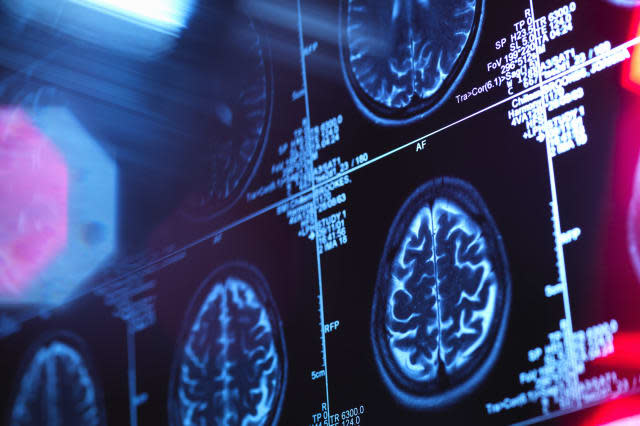Six surprising things that increase dementia risk

You know that smoking, alcohol and obesity can increase your risk of dementia - but you might be surprised at some of the other things that have been linked to the disease.
See also: Nine ways to reduce your risk of dementia
See also: Five medical issues that can be mistaken for dementia
1. Air pollution
Tiny magnetic particles emitted by cars can travel into the human brain and may trigger Alzheimer's disease, research has found.
Experts have discovered the presence of magnetic nanoparticles, which have previously been associated with the development of neurodegenerative diseases such as Alzheimer's, in the human brain.
According to researchers from the UK and Mexico, the shape and features of the nanoparticles suggest they are less likely to have been formed naturally in the body and more likely to have come from an outside source, possibly air pollution.
However, Dr David Reynolds, chief scientific officer at Alzheimer's Research UK, said it was too early to conclude that it may have a causal role in Alzheimer's disease or any other brain disease.
"We know that air pollution can have a negative impact on certain aspects of human health, but we can't conclude from this study that magnetite nanoparticles carried in air pollution are harmful to brain health."
2. Calcium supplements
Older women who take calcium supplements could be at increased risk of dementia, particularly if they've had a stroke, according to a study published in the journal Neurology.
Researchers from the University of Gothenburg in Sweden say that female stroke survivors who took calcium supplements were seven times more likely to develop dementia compared to women with a history of stroke who didn't take the supplements.
Women with white matter brain lesions (an evidence of mini-stroke) who took calcium were three times more likely to suffer from dementia than those with white matter lesions who didn't take the supplements.
However, the study can't prove cause and effect, and it's worth remembering that many factors increase the risk of dementia. Women with cerebrovascular disease who take calcium supplements for osteoporosis should see their doctor if concerned.
3. Sleeping aids and allergy meds
Over-the-counter insomnia remedies, sedating allergy medication such as Benadryl, and sedating pain meds like Tylenol PM could all increase your dementia risk. That's the finding of a recent study published in JAMA Neurology.
Researchers from the Indiana University School of Medicine found a link between anticholinergic drugs and poorer cognition and changes in brain structure and function. Some prescription medication for depression and urinary incontinence are part of the same group of drugs.
Researchers found that the risk of dementia was particularly high in people who took more than one kind of anticholinergic. When people stopped taking the drugs, their risk returned to normal levels.
If you're concerned, talk to your doctor. You should never stop taking prescribed medication without consulting your GP first.
4. Low Vitamin D levels
You know that you need vitamin D for strong bones – but did you know that a lack of the sunshine vitamin could increase your risk of dementia?
Researchers from The State University of New Jersey found that older adults with low levels of vitamin D in their blood (under 20 ng/mL) had an increased risk of cognitive decline and memory problems.
Study researcher Joshua W. Miller, PhD, said that it's not known if vitamin D supplements will slow or prevent cognitive decline, but taking them is relatively safe, "presuming the upper tolerable limit of 4000 IU per day is not exceeded."
Another 2013 study in Denmark which followed a group of volunteers over 30 years, found that those who developed dementia had lower levels of vitamin D in their body.
Getting some sunshine each day is the best way to increase your vitamin D levels naturally. It can also be found in foods such as oily fish (salmon, mackerel, sardines), foods fortified with vitamin D, such as dairy products, bread and cereals, cod liver oil and egg yolks.
5. Heartburn medication
Do you take heartburn medication with proton pump inhibitors (PPIs)? If so, you might want to seek advice from your doctor.
Researchers in Germany have found a link between dementia and older adults who take PPIs and conclude that "the avoidance of PPI medication may prevent the development of dementia."
While you shouldn't stop taking these medications without consulting your doctor first, it's may be best to avoid using them long term.
6. Depression
Adults who suffer with depression are 1.5 times more likely to develop dementia or Alzheimer's disease according to a 2010 study published in Neurology Depression.
A long-term analysis from the Framingham Heart Study discovered a 50% increase in the risk of dementia with each 10-point increase in score on depression tests, and a 40% increase for Alzheimer's disease.
Researchers suggest that chronic inflammatory changes which occur in depression, potentially as a result of stress, may contribute to the development of dementia and Alzheimer's disease.



